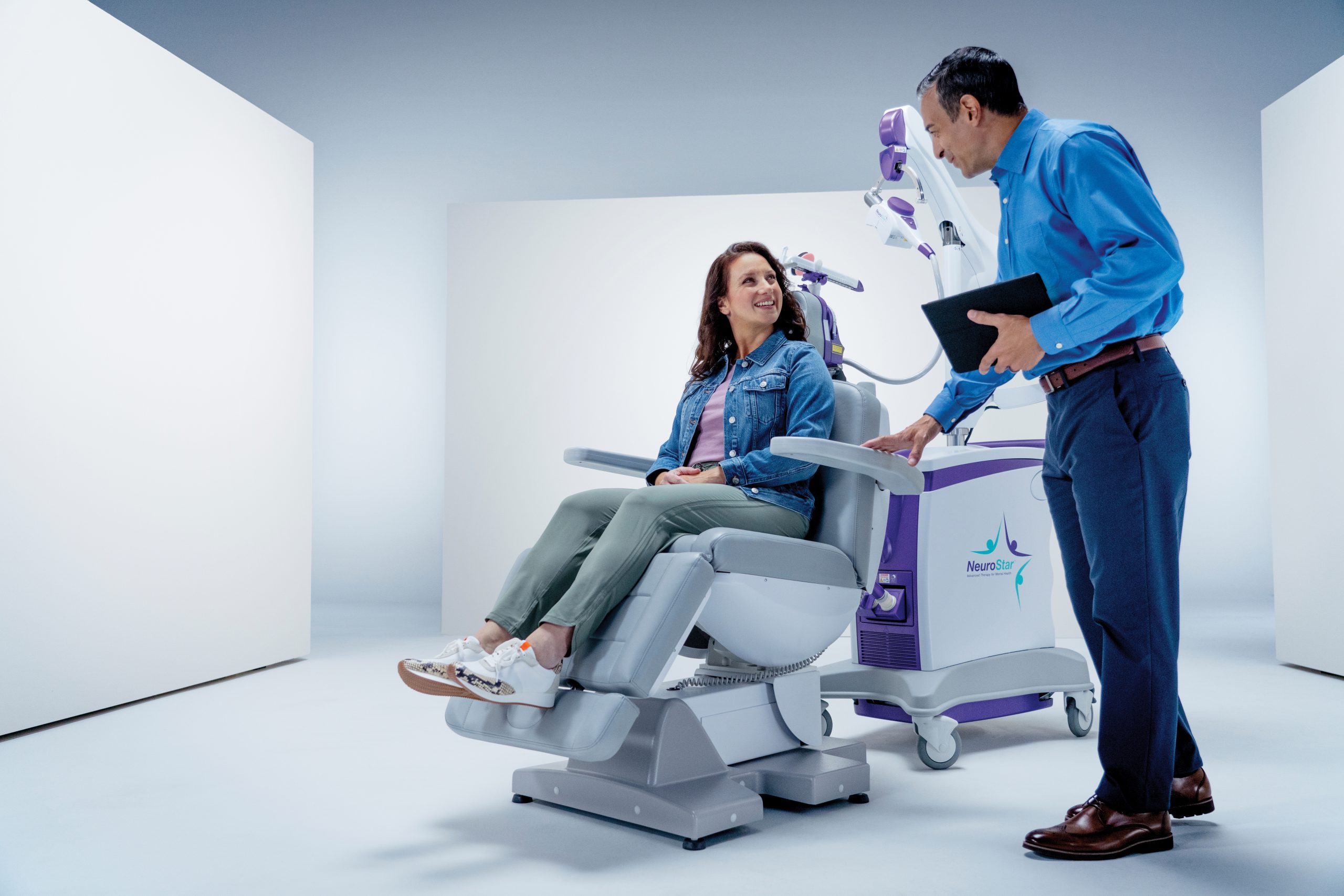Tap into new possibility

Depression is a common mood disorder that negatively affects how you think, act, and feel. People with depression have trouble completing day-to-day activities and find that it greatly impacts their relationships with others. While there are options to help combat depression, sometimes it is not so straightforward.
Maybe you’ve tried medications and talk therapy but feel like you aren’t making any progress. While medications might work for some people; others could struggle to find the right prescription combination. Studies show that the chance of remission goes down with each new medication. According to NeuroStar’s studies, “In a large study of pharmaceutical treatments for depression, patients who tried 4 medications had just a 7% rate of remission.” While it is not easy figuring out what method works best for you, the good news is there isn’t just one path.
What if there was another solution?
What is TMS?
TMS stands for Transcranial Magnetic Stimulation and is an FDA-cleared, safe, effective, non-drug treatment for depression.
Who is used for?
TMS therapy is for adult patients with Major Depressive Disorder. This treatment is best for people who have not benefited from prior medication and would like to consider non-systemic treatment.
What is the time commitment?
TMS is a total of 36 treatments, Monday through Friday. The initial mapping ranges from 1-1.5 hours and the follow-up appointments are around 30 minutes a session. This is a time commitment that does require you to come in person to our office and receive the treatment. If you happen to miss a day or two due to unexpected circumstances, your Provider will make a recommendation on how to continue with treatment. However, if you plan to have some time away, we do suggest planning the treatment before or after the trip.
How much does it cost?
TMS is covered under most insurances, we are currently contracted with Anthem, Cigna, UBH, Magellan, MHN, and Aetna. We are in the process of getting contracted with more insurances as well. We also offer Self Pay rates too.
What are the treatments like? Does it hurt? Is it safe?
You get to relax in a comfortable reclining chair where you can chat with our staff, watch a movie, read a book, or listen to music. You will be awake during these treatments and will be able to drive to and from the appointments. You will feel a tapping sensation on the front part of the left side of your head. Everyone experiences the pulses differently, and your provider can modify them so you are more comfortable.
The most common side effect is discomfort in the treatment area. Some patients complain of a slight headache after the first day but that goes down after the first few days. Most patients find any discomfort diminishes after the first 5 days of treatment.
How is TMS different from medications?
TMS targets the problem at the source. The coil placed on the left prefrontal cortex is sending pulsed magnetic fields to stimulate the underactive cells in your brain. Since medications affect your entire body there tend to have systemic side effects. The probability you will achieve remission with another antidepressant after 3 medication failures are less than 7%. The efficacy with NeuroStar TMS is 83% of patients responded and 62% achieved remission.
While these are some of the common questions around TMS, if you find yourself wanting more information please reach out. Check out our website, activatetms.com.
Think of this time as a positive move into your mental health journey. This time is dedicated to you so every day you show up for the treatments you should be proud. It’s not easy taking the first steps but we are here to help you along this path. If you or a loved one are interested in learning more about TMS please reach out, we would love to talk with you.
We encourage everyone who is curious about what TMS can do for you, to take our quiz now.